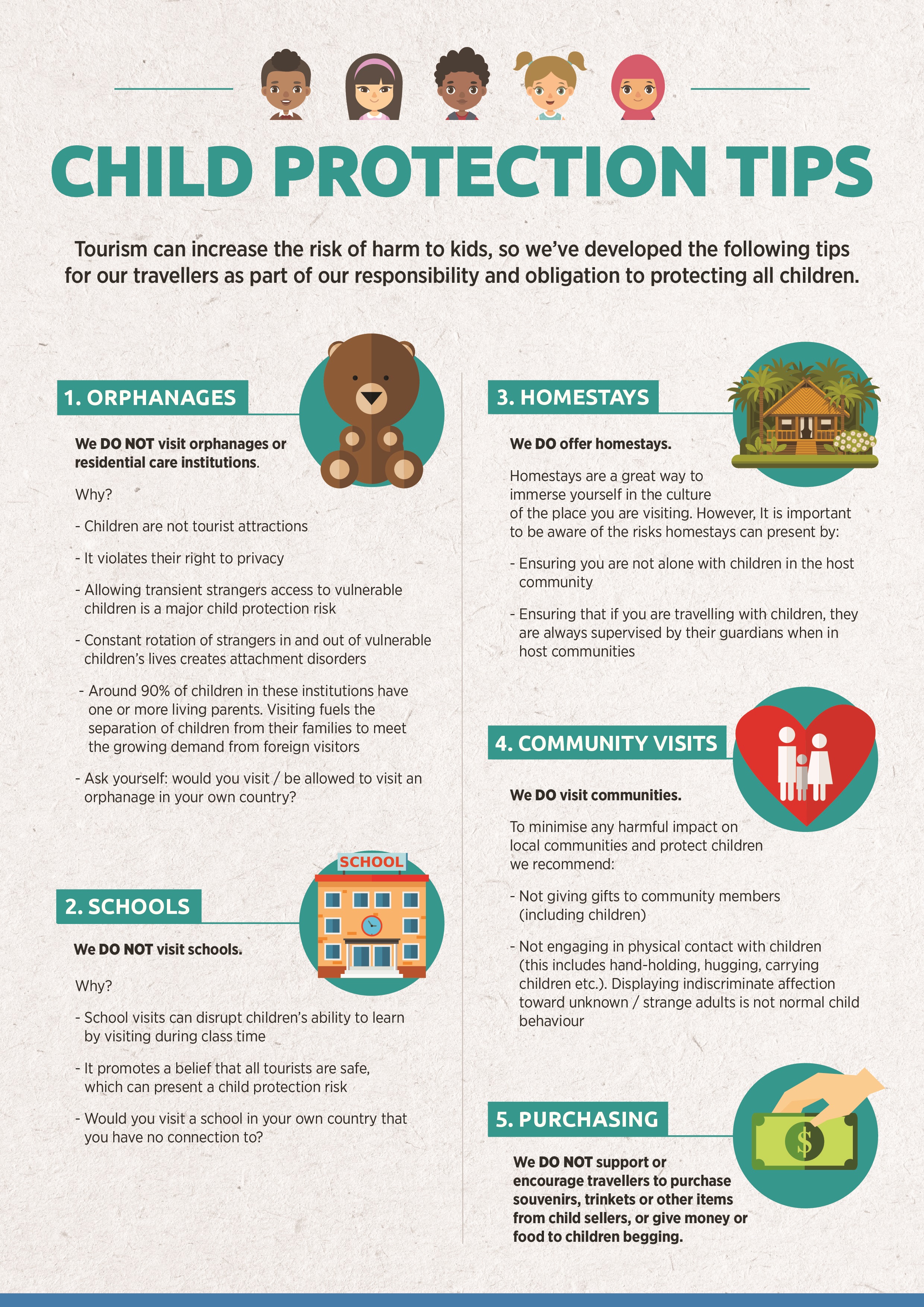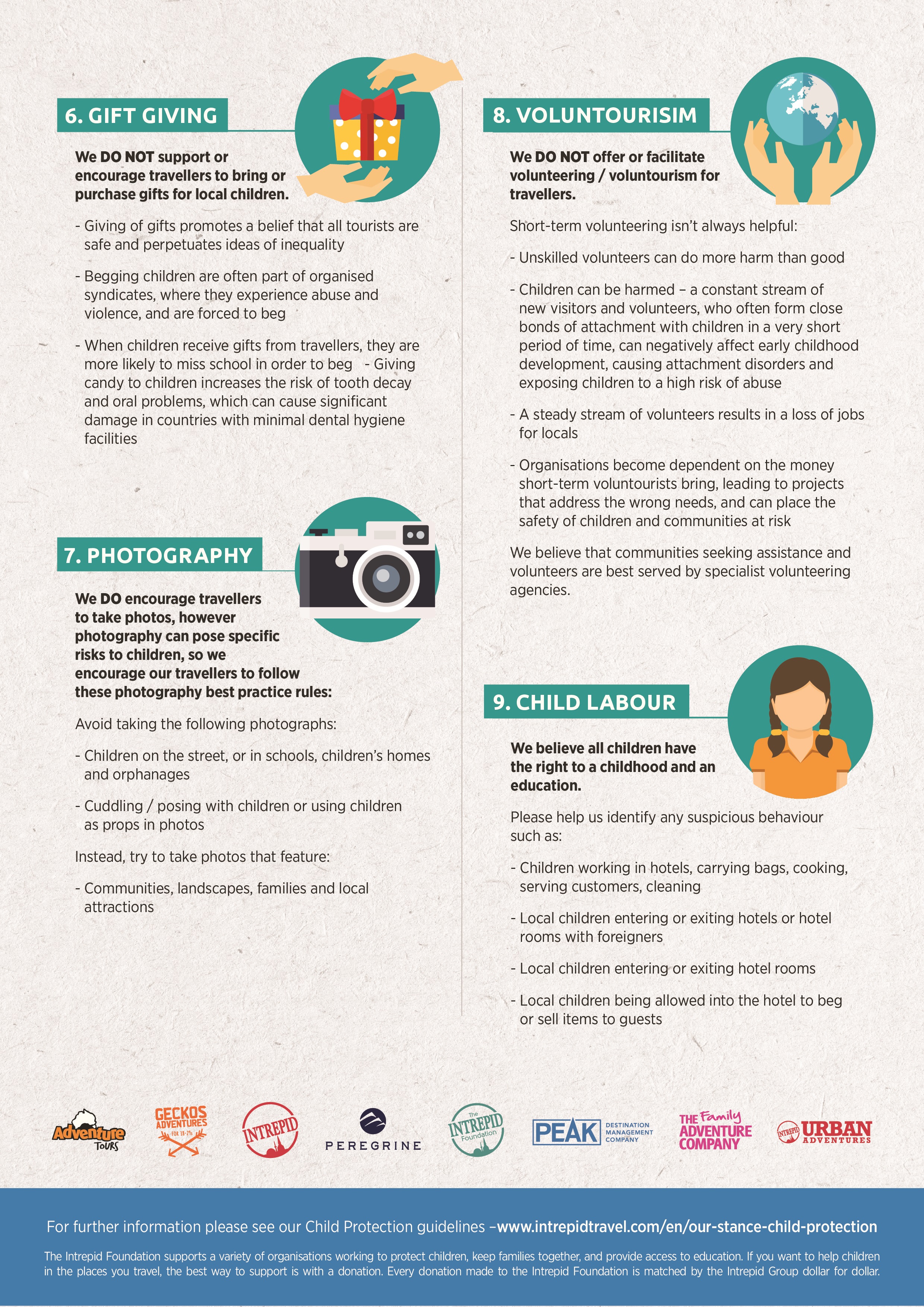“This is modern slavery”: Experts talk Orphanage Tourism at panel discussion

This morning, Save the Children, Intrepid Travel, ReThink Orphanages and Boston Consulting Group co-hosted an Orphanage Tourism panel in Sydney to promote discussion around child safe travel.
With the help of some very notable experts, including Karen Flanagan A.M. Save The Children, Leigh Matthews, Cofounder of ReThink Orphanages and Liz Manning, Responsible Business Manager, Intrepid Group, a robust discussion ensued.
According to the Save the Children, 8 million children live in institutions, including orphanages, globally, even though over 80 per cent of them have living parents or family.
Growing up in an orphanage, even in the best-run facility, damages a child’s emotional and physical wellbeing, with the effects being lifelong and inter-generational.
Orphanage tourism is now big business, driven by well-meaning tourists who simply aren’t aware they’re supporting orphanages that are doing more harm than good.
The Intrepid group have been active in their support for best practice child protection and work to ensure children and their families are protected from harm.
“Until May 2016 we visited a handful of orphanages. As a result of feedback we made the decision to not include orphanage visits,” said Manning.
“More than a third of people in a given group trip would say they felt really uncomfortable and they weren’t sure why they were doing it.”
According to Manning, this raised many questions about the ethics of orphanage tourism.
“It’s not something we’d ever be allowed to do at home. The opportunity is to say no that isn’t something that we do and have the conversation about why,” she said.
Matthews said that it’s never appropriate to visit an orphanage as the scope of the problem isn’t limited to a handful of countries – it’s happening all over the world.
“Definitely orphanages are set up to cater for demand of orphan experiences. We need big companies to come out and say no to these practices. Reputational risk does get it over the line,” Matthews said.
Kate Van Doore, Program Director, Griffith law school and Forget Me Not co-founder told the panel that the children in the orphanages where Forget Me Not first opened, in Nepal and Uganda were recruits, not orphans.
“The poor conditions were to elicit more funding and sympathy. It’s a form of human trafficking and this is modern slavery,” she said.
“The wheels came off when we were approached to take over an orphanage in Uganda – 39 children in dire straits – children with malaria, sugar in water for lunch to keep them going. It was heartbreaking. We left and decided to fund the orphanage.”
“The children started saying: can I just go home to mum and dad? We were always told don’t ask the children about the parents. But we could contact families quite easily as the children were 10 or 11.”
“The modern slavery act is set to drop next week. The government’s position last week is that orphanage tourism trafficking is criminalised under the code. Companies with turnovers of $100m must report on supply chains and any contributions to residential care institutions.”
Manning said Intrepid helped partners transition to the model of Save the Children with child protection training, funded completely in East Africa, and intend will do the same with Latin America and Asia before the end of the year with their TIF partners.
“Our stance is to have a conversation about how we can do things better. It’s a heavy topic but let’s start having a conversation. We have a responsibility to do something about it. My advice to travel companies is to evaluate who you’re working with and creating a code of conduct. Use the modern slavery act as a driving force with partners.”
The adventure travel company also provided a handy booklet with tips on child protection in travel:


Featured image credit: Child in Nepal by Ben McNamara for Intrepid Travel
Email the Travel Weekly team at traveldesk@travelweekly.com.au
child safety intrepid travel modern slavery act Orphanage Tourism ReThink Orphanages Save the ChildrenLatest News

Holland America Line gives agents the chance to visit Alaska on 11-day Famil
If you've ever wanted to see a Polar Bear (and who doesn't?), now is your time.

More than 65 luxury agents gather in Sydney for Best of the Best dinner
This looks like a fabulous do. We imagine there may be a few (or maybe 65) sore heads this morning!

Globally-renowned chefs gather for Vivid Food 2024
As a human, we agree that food is a fundamental part of the human experience. Some might say the most fundamental.

Air New Zealand returns to Hobart and Seoul
If you notice an uptick in Kiwis making their way through the Mona, you know why.

European Waterways targets multi-generational families with ‘floating villa’ deal
The jury is still out on whether spending a week on a 'floating villa' with family is a hell or a paradise.

Luxury Escapes launches ‘sail away’ sale
Rest assured, you'll be getting your 'sails' and 'sales' mixed up for the rest of the day.

Rex-owned National Jet Express adds weekly charter between Brisbane and Orange
This is for mining and civil contractors, so please, put your holiday attire away.

Let the games begin. Viking introduces eye-watering benefits for the industry’s top 10 advisors
Did someone say 'trip to Venice'? Hold my coat, this one is far too good to miss!

Best friends or frenemies? What is the REAL relationship between sales and marketing?
We can all stop fighting over the corner office because our mothers were right - we are all important in our own way.

The Walshe Group Announces Two Key Appointments
What we really want to know is whether they got joint or separate welcome parties.

FAMIL: Agents explore the delights of Mauritius on 7-day tour
Go green with envy as you read this fabulous itinerary! Time to book that second honeymoon.

Hamad International recognised as world’s best airport at 2024 Skytrax World Airport Awards
Hamad airport is so good it is almost considered a destination in itself. Ballina, up your game.

Saudi Arabia highlights tourism investment opportunities at global investment event
Now is the time to start looking at Saudi Arabia if you are not already. There's big things to come.

“Rampant” – Aussies warned as dengue fever cases spike in Bali
Worried about Bali belly? Now you have something else to worry about.

TTC Tour Brand reveals slew of deals across operators including Trafalgar and Contiki
Everybody loves a bargain and you could do lot a lot worse than check out these deals from TTC!

Fiji Airways partners with Porter Airlines in US growth bid
Any initiative that gets more people visiting the delights of Fiji is a good initiative.

Flight Centre launches CruiseHQ – a marketplace exclusively for agents
The cruise industry has surpassed pre-Covid levels so this isn't one to miss!

Feeling festive? Wendy Wu tours unwraps Christmas collection
Get the Christmas hols booked now and avoid spending it with that elderly relative with dubious political views.

OPINION: In a world of screens, we crave experience
If you get feelings of deep shame and regret when you see your screen time, don't worry - you're not alone.

Sun Princess: High-end dining and world class entertainment awaits
If you are a foodie and you are not currently on the Sun Princess, we really have to ask - what are you doing?

YouGov: 2 in 5 Aussies would pay more for a sustainable hotel
If you want to be REALLY sustainable you can go camping. You just might lose the will to live.

“Can planes swim?” – Planes become boats as Dubai Airport is savaged by severe storm
Unfortunately, "can planes swim?" is a real life question and not an opener to a really bad joke...

Explora journeys reveals bespoke outdoor furniture designed by Matteo Nunziati
This is making your plastic table and chairs look really bad now, isn't it?

Bangkok Airways targets growth with renewed Sabre deal
Two stories abut Sabre's growth in one week and its only Wednesday! Watchout world.

PR agency Example wins pitch for InterContinental Sydney
We also went in for the contract but they said that a 'Be Our Guest'- themed TikTok was unoriginal! The cheek.

Norwegian Cruise Line reveals culinary experience aboard Norwegian Aqua
Once again, this TW journalist REALLY regrets writing this before getting lunch.

Signature Queensland hosts luxury tourism event
Known for its tropical beaches and unique wildlife, Queensland also offers luxury.

Capella Sydney recognised in prestigious Travel + Leisure’s 2024 ‘it list’ of best new hotels
You know that 'it girl' at school who everyone wanted to hang out with? Capella is the hotel version of that.

Rex launches 72-hour fare sale with NO school holiday blackout so you can take your kids (if you want to)
Sadly, leaving your children at home whilst you go on holiday is generally frowned upon.

Adventure World offers chance to connect with “heart and soul” of the US
I mean who hasn't dreamed of a road trip around the US?! Go with Adventure World and you're less likely to get lost.

Fiji’s family-owned luxury resort Likuliku Lagoon launches its own app
We were relieved to find out that having a "concierge in your pocket" referred to an app on your phone.

Hawaii: The US’ laid-back front door for Australians
If you needed another sign that you should definitely head to Hawaii - this is it!

Sabre targets Asia Pacific growth with latest hire
Call the Avengers! Sabre continues its bid for world domination with latest hire.

Air New Zealand signs its largest EVER deal for sustainable aviation fuel
Air New Zealand makes huge step towards sustainable travel. We bet it recycles its rubbish properly too.

IHG Hotels & Resorts continues regional growth with Sunshine Coast Holiday Inn
This Holiday Inn looks considerably flashier than some of the ones we have stayed at in our time.

Budget carrier Scoot welcomes first of 9 E190-E2 aircrafts
Here at TW we would like to offer Embraer E190-E2 a warm welcome! It's not easy being the first of the fleet.
